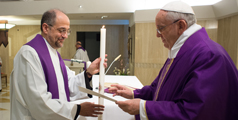
The Pope’s homily began with a reference to “two Readings offered in today’s Liturgy (Gen 17:3-9 and Jn 8:51-59), which “speak of time, of eternity, of years, of the future, of the past”. In fact “time seems to be very important in the liturgical message” of the day, he said. However, Francis chose to reflect on different words which he believed, he said, “to really be the message in the Church today”. They are the words of Jesus as narrated by John the Evangelist: “Your father Abraham rejoiced that he was to see my day; he saw it and was glad”.
Thus, today’s central message is “the joy of hope, the joy of trusting in God’s promise, the joy of fruitfulness”. In fact, “Abraham, in the time the First Reading speaks about, was 99 years old and the Lord appeared to him and secured the covenant” with these words: “Behold, my covenant is with you, and you shall be a father”.
Abraham, Francis continued, “had a 12- or 13-year-old son: Ishmael”. But God assured him that he would become “the father of a multitude of nations”. and “changed his name”. Then “He continued and asked him to be faithful to the covenant”, saying: “I will establish my covenant between me and you and your descendants after you throughout their generations for an everlasting covenant”. Essentially, God told Abraham: “I give you everything, I give you time: I give you all, you will be father”.
Surely Abraham, the Pope said, “was happy about this, was filled with comfort” in hearing the Lord’s promise: “Within a year you shall have another son”. Of course, in hearing these words, “Abraham laughed, the Bible says afterwards: how, a son at 100 years old?”. Yes, “he had begotten Ishmael at 87 years, but at 100 years a son is too much. It was incomprehensible!”. Therefore, “he laughed”. But “that smile, that laughter was the start of Abraham’s joy”. Here then, the Pope brought back the essence of Jesus’ words as the day’s central message: “Your father Abraham rejoiced”. Indeed, “didn’t dare believe and said to the Lord: ‘But if only Ishmael should live in your presence?”. To which he received the response, “No, it shall not be Ishmael. It shall be another”.
Thus, the Pope stated, Abraham “was joyful” and “a little later his wife Sarah also laughed. She was hiding behind the tent door, listening to what the men were saying”. And “when these messengers of God gave Abraham the news about his son, she too laughed”. And this really was “the beginning of the great joy of Abraham”, Francis said. Yes, “the great joy: he rejoiced in the hope of seeing this day; he saw it and was filled with joy”. The Pope recommended that we look to “this beautiful icon: Abraham who was before God, who bowed himself to the earth. He heard this promise and his heart opened to hope and was filled with joy”.
This is precisely “what these doctors of the law did not understand”, Francis said. “They did not understand the joy of the promise; they didn’t understand the joy of hope; they didn’t understand the joy of the covenant. They did not understand”. And “they didn’t know how to rejoice, for they had lost the sense of joy that only comes from faith”. However, the Pope explained, “our father Abraham was able to rejoice because he had faith; he had been made righteous in faith”. Meanwhile the doctors of the law “had lost the faith: they were doctors of the law, but without faith!”. Moreover: “they had lost the law! Because the centre of law is love, love for God and for neighbour”. However, they “had only a system of specific teachings which they refined further every day so that no one would touch them.
They were “men without faith, without laws, attached to doctrines which had even become a casuistic approach”. Francis also proposed practical examples: “We can pay taxes to Caesar, can’t we? This woman, who was married seven times, when she went to heaven would she be the spouse of those seven?”. And “this casuistry was their world: an abstract world, a world without love, a world without faith, a world without hope, a world without trust, a world without God”. For this very reason “they were unable to rejoice”. They didn’t even enjoy themselves at parties, the Pope affirmed, although they surely “uncorked a few bottles when when Jesus was condemned”. But they were always “without joy”, or moreover, “afraid that one of them, perhaps while drinking” would remember the promise “He would rise”. And thus, “straight away, with fear, they went tot he prosecutor to say ‘please, be careful with this one, that it isn’t a trick”. All this was because “they were afraid”.
But “this is life without faith in God, without trust in God, without hope in God”, the Pope affirmed once again. The life of these men, he added “who only when they understood that they had been wrong” did they think that the only choice left was to take up stones to throw at Jesus. “Their heart had become stone”. Indeed “it is sad to be a believer without joy”, Francis explained, “and there is no joy when there is no faith, when there is no hope, when there is no law, but only the prescriptions, the cold doctrine. This is what counts”. In contrast, the Pope again proposed “Abraham’s joy, that beautiful act of Abraham’s laughter” when he heard the promise of having “a son at 100 years”; as well as “Sarah’s smile, a smile of hope”. This is because “the joy of faith, the joy of the Gospel is the touchstone of a person’s faith: without joy that person is not a true believer”.
In conclusion, Francis used the very words of Jesus: “Your father Abraham rejoiced that he was glad to see my day; he saw it and was glad”. The Pope then asked “the Lord for the grace to rejoice in hope, the grace to be able to see the day of Jesus, when we will be with Him and the grace of joy”

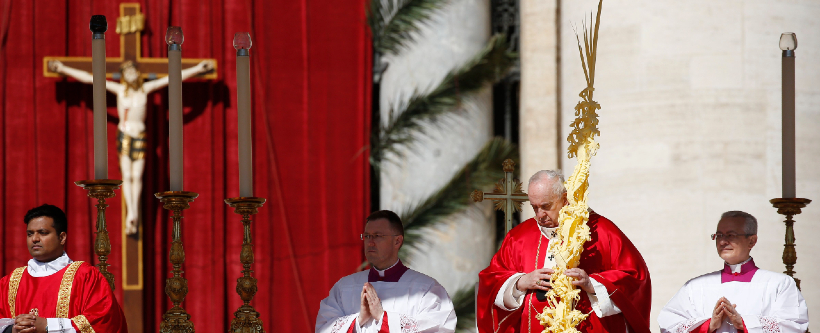
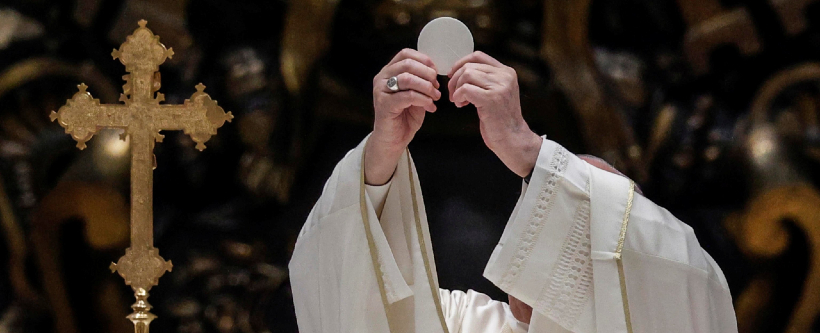
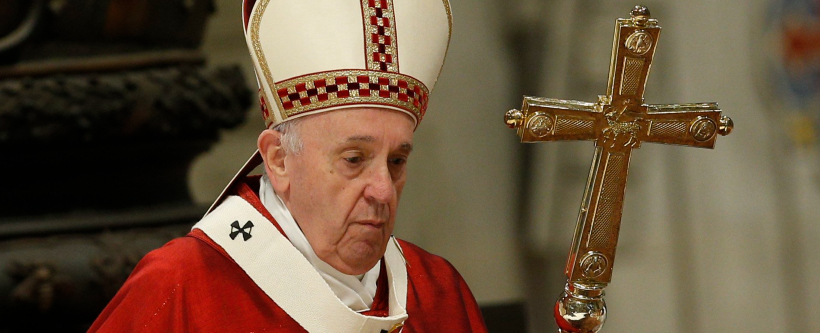
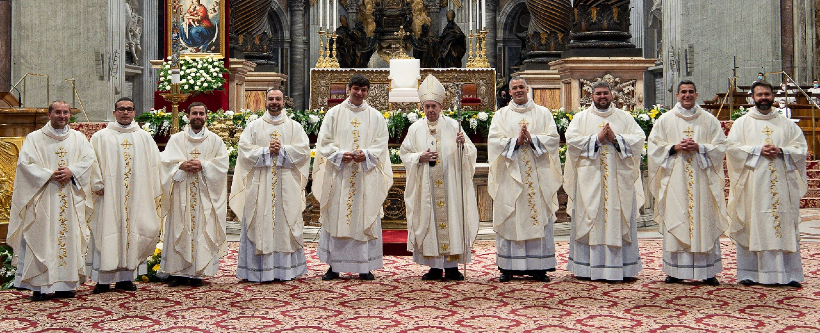
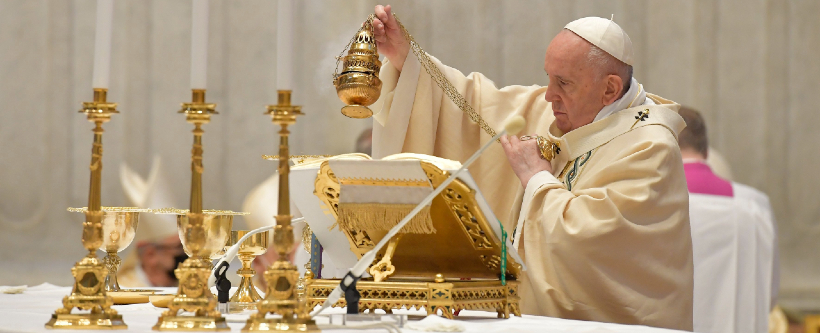
Facebook Comments